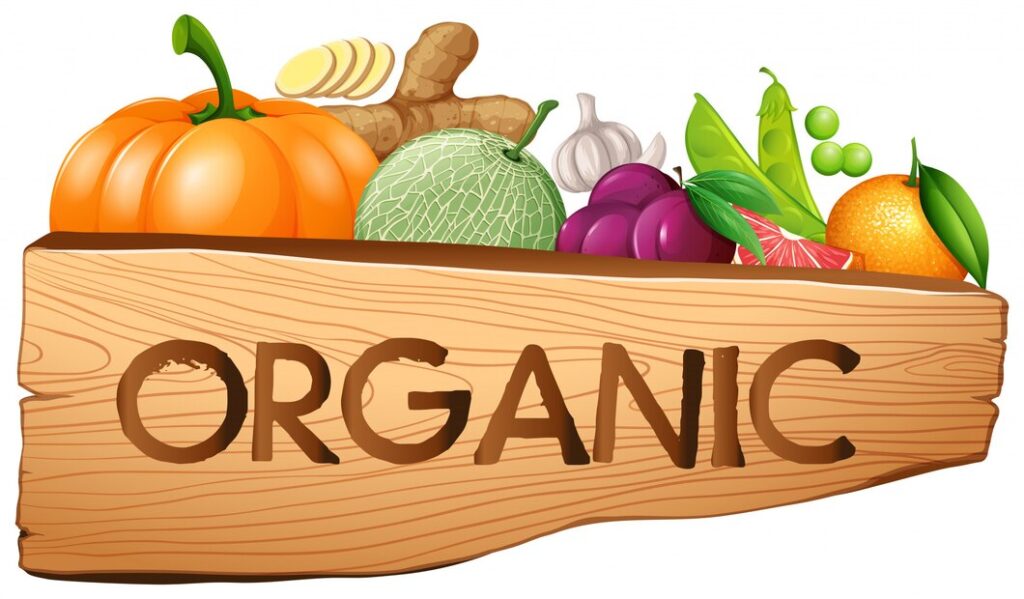Embracing Organic Farming: A Path to Sustainable Agriculture

In recent years, organic farming has emerged as a critical motion within agriculture, emphasizing sustainability, environmental health, and the nicely-being of customers. This approach of farming, which avoids synthetic chemicals and genetically modified organisms (GMOs), has gained momentum as humans grow to be increasingly more aware about the ecological and health impacts of traditional agricultural practices. This article delves into the principles of natural farming, its blessings, demanding situations, and its function in shaping a sustainable future.
Principles of Organic Farming
Organic farming is grounded in several center standards that differentiate it from conventional farming techniques. These standards awareness on retaining ecological stability, improving soil fertility, and promoting biodiversity. Key concepts consist of:
- Soil Health: Organic farming prioritizes the fitness of the soil, recognizing it as a living gadget. Techniques which include crop rotation, inexperienced manure, composting, and reduced tillage are hired to decorate soil structure, fertility, and microbial activity.
- Biodiversity: Biodiversity is integral to natural farming. By cultivating a lot of vegetation and preserving natural habitats, organic farms assist diverse ecosystems that make contributions to pest control, pollination, and typical farm resilience.
- Prohibition of Synthetic Inputs: Organic farming strictly prohibits the usage of synthetic insecticides, herbicides, and fertilizers. Instead, it is based on natural alternatives along with biological pest manage, natural fertilizers, and included pest control (IPM) strategies.
- Animal Welfare: Organic livestock farming emphasizes animal welfare, imparting animals with access to outside spaces, herbal diets, and humane residing situations. This precept guarantees the ethical remedy of animals and the manufacturing of healthier meat, dairy, and eggs.
- Sustainability: Sustainability is a cornerstone of organic farming. Practices along with water conservation, renewable energy use, and minimizing carbon footprints are employed to create a farming device that could endure over the long time with out depleting natural assets.
Benefits of Organic Farming
The blessings of organic farming increase past the farm itself, impacting the surroundings, human health, and the economic system. Some of the terrific advantages include:
- Environmental Health: Organic farming practices lessen pollution and soil degradation. By warding off synthetic chemical substances, natural farms prevent water contamination and promote healthier ecosystems. Enhanced soil health additionally leads to better water retention and reduced erosion.
- Healthier Food: Organic produce is regularly richer in nutrients, nutrients, and minerals in comparison to conventionally grown opposite numbers. The absence of synthetic pesticides and GMOs also way that customers are less exposed to probably dangerous materials.
- Biodiversity Conservation: Organic farms are hotspots for biodiversity. The diverse crop types and natural habitats help a wide range of plant and animal species, contributing to ecological balance and resilience.
- Climate Change Mitigation: Organic farming practices can help mitigate weather exchange. Healthier soils sequester greater carbon, and natural structures commonly use less power and bring fewer greenhouse gases compared to conventional agriculture.
- Economic Viability: While natural farming may additionally have better preliminary costs, it can be economically feasible ultimately. Organic products often command top class charges, and the decreased reliance on synthetic inputs can decrease manufacturing costs through the years. Additionally, natural farming can create jobs and help rural economies.
Challenges of Organic Farming

Despite its severa advantages, organic farming faces several challenges that want to be addressed to make sure its vast adoption and fulfillment. These demanding situations consist of:
- Yield Gaps: Organic farms frequently produce lower yields as compared to standard farms. This yield hole may be attributed to different factors, consisting of pest stress, nutrient availability, and the absence of synthetic inputs. Research and innovation are had to expand natural practices that may near this hole.
- Labor Intensity: Organic farming is generally greater hard work-in depth than traditional farming. Practices together with hand weeding, composting, and crop rotation require extra manual exertions, which could growth manufacturing prices and limit scalability.
- Market Access: Access to markets for organic merchandise can be a venture, in particular for small-scale farmers. Establishing reliable deliver chains, certification processes, and purchaser focus are critical for the boom of the natural marketplace.
- Certification and Regulation: Obtaining organic certification can be a complex and high priced process. Farmers must adhere to strict requirements and go through regular inspections, which may be burdensome, especially for smallholders. Streamlining certification tactics and imparting aid can help alleviate this venture.
- Education and Training: Knowledge and abilities precise to natural farming are essential for its achievement. Farmers need get entry to to schooling and schooling programs that provide them with the necessary equipment and strategies to put in force natural practices correctly.
The Future of Organic Farming
The destiny of natural farming lies in its capability to conform and integrate with new technology and clinical advancements whilst staying authentic to its middle principles. Innovations along with precision agriculture, agroecology, and sustainable intensification can help organic farms turn out to be more efficient and efficient.
- Precision Agriculture: By the usage of records and technology, precision agriculture can optimize aid use and improve crop control. Techniques together with remote sensing, soil mapping, and GPS-guided machinery can decorate the performance and sustainability of natural farming.
- Agroecology: Agroecology emphasizes ecological ideas and the combination of conventional expertise with present day technological know-how. By adopting agroecological practices, organic farms can decorate biodiversity, enhance soil fitness, and create resilient farming systems.
- Sustainable Intensification: Sustainable intensification seeks to boom agricultural productivity even as minimizing environmental impact. Organic farming can gain from this method by adopting practices that enhance yield with out compromising sustainability.
- Consumer Awareness and Demand: Increasing patron focus and demand for organic products will power the growth of natural farming. Education campaigns, certification programs, and transparent labeling can assist construct accept as true with and inspire greater people to pick out organic.
- Policy Support: Government guidelines and incentives play a essential function in promoting organic farming. Subsidies, research investment, and supportive policies can create an permitting surroundings for organic farmers and facilitate the transition from conventional to natural systems.
Conclusion
Organic farming represents a holistic method to agriculture that prioritizes environmental fitness, human well-being, and sustainability. While it faces demanding situations, the advantages it gives to the surroundings, customers, and the economy are tremendous. By embracing innovation, training, and supportive guidelines, natural farming can keep growing and play a pivotal role in creating a sustainable agricultural future. As clients, farmers, and policymakers work collectively, the vision of a healthier, greater sustainable world through organic farming turns into increasingly potential.



